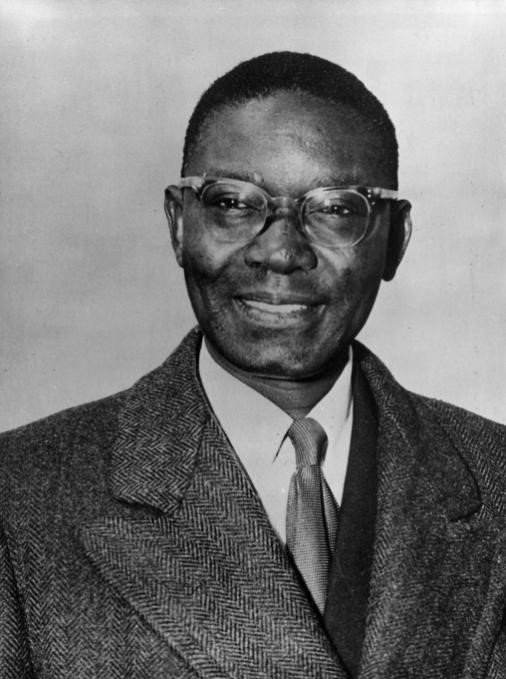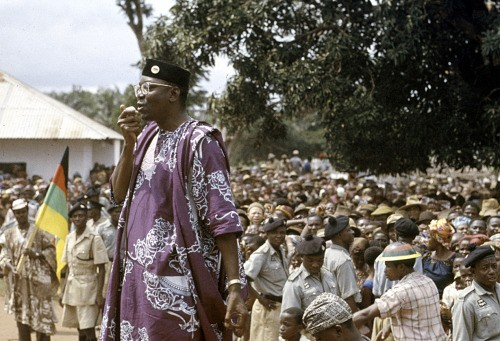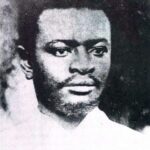NNAMDI AZIKWE BENJAMIN
- 4 Min Read
Benjamin Nnamdi Azikiwe (November 16, 1904 – May 11, 1996) was the first president of independent Nigeria (1963–66) and a prominent nationalist figure. He was born on November 16, 1904, in Zungeru, Northern Nigeria. His parents were Igbo; his father, Obed-Edom Chukwuemeka Azikiwe (1879–1958), a clerk in the British Administration of Nigeria and his mother was Rachel Ogbenyeanu Azikiwe. His mother and father gave him the name Benjamin, however, he later changed it to Nnamdi.

Benjamin Nnamdi Azikiwe, the first president of independent Nigeria (1963–66)
Azikiwe attended various primary and secondary mission schools in Onitsha, Calabar, and Lagos. After studying at Hope Waddell Training Institute, Calabar, Azikiwe went to the United States for his university education. He earned multiple certificates and degrees, including bachelor’s and master’s degrees from Lincoln University in Pennsylvania and a second master’s degree from the University of Pennsylvania.
As an ardent nationalist as well as a Pan–Africanist, Dr. Azikiwe returned to Nigeria in 1937 after a three–year sojourn in the Gold Coast (Ghana), where he had begun his journalistic career by founding and editing the highly influential newspaper, African Morning Post. This served as a springboard for nationalist agitation in the Anglophone West African countries. His two seminal works — Liberia in World Politics (1932) and Renascent Africa (1937) — embody his original thoughts on colonialism, African independence, and education.
However, as a result of publishing an article on May 15, 1936, titled “Has the African a God?” written by I. T. A. Wallace-Johnson, he was brought to trial on charges of sedition. Although he was found guilty of the charges and sentenced to six months in prison, he was acquitted on appeal. He returned to Lagos, Nigeria, in 1937 and founded the West African Pilot, which he used as a vehicle to foster Nigerian nationalism. He founded the Zik Group of Newspapers, publishing multiple newspapers in cities across the country. Azikiwe became active in the Nigerian Youth Movement (NYM), the first genuinely nationalist organisation in Nigeria.
However, in 1941, he backed Samuel Akinsanya to be NYM candidate for a vacant seat in the Legislative Council, but the executive selected Ernest Ikoli instead. Azikiwe resigned from the NYM amid accusations of discrimination against Ijebu members, taking all Ibo and most Ijebu members with him. After a successful journalism enterprise, Azikiwe entered into politics, co-founding the National Council of Nigeria and the Cameroons (NCNC) alongside Herbert Macaulay in 1944. He became the secretary-general of the National Council in 1946 and was elected to the Legislative Council of Nigeria the following year.

PHOTO CAPTION: Benjamin Nnamdi Azikwe. SOURCE: EA Library
In 1951, he became the leader of the Opposition to the government of Obafemi Awolowo in the Western Region’s House of Assembly. In 1952, he moved to the Eastern Region and was elected to the position of Chief Minister and in 1954 became Premier of Nigeria’s Eastern Region.
On November 16, 1960, he became the Governor-General and on the same day became the first Nigerian named to the Privy Council of the United Kingdom by Queen Elizabeth II. With the proclamation of a republic in 1963, he became the first President of Nigeria, while Abubakar Tafawa Balewa was the Prime Minister. Azikiwe and his civilian colleagues were removed from power in the military coup of January 15, 1966.
During the Biafran (1967–1970) war of secession, Azikiwe became a spokesman for the nascent republic and an adviser to its leader, Chukwuemeka Odumegwu Ojukwu. After the war, he served as Chancellor of Lagos University from 1972 to 1976. He joined the Nigerian People’s Party in 1978, making unsuccessful bids for the presidency in 1979 and again in 1983. He left politics involuntarily after the military coup on December 31, 1983. He died on May 11, 1996, at the University of Nigeria Teaching Hospital in Enugu, Enugu State, after a protracted illness.
EA EDITORS



